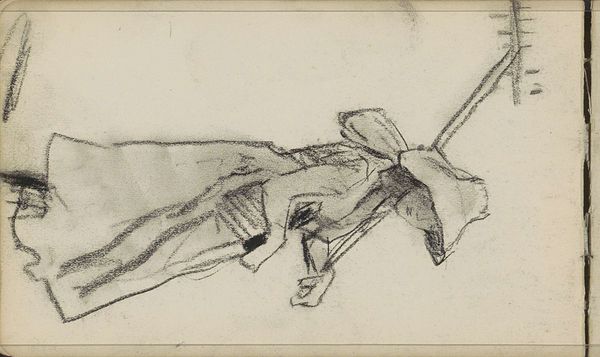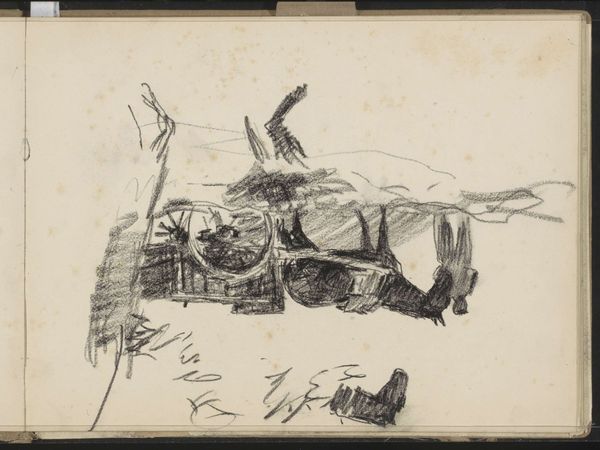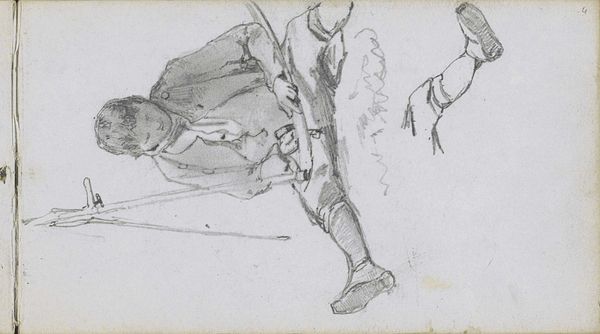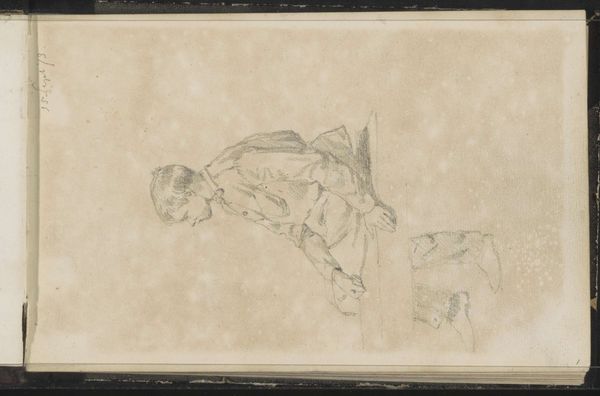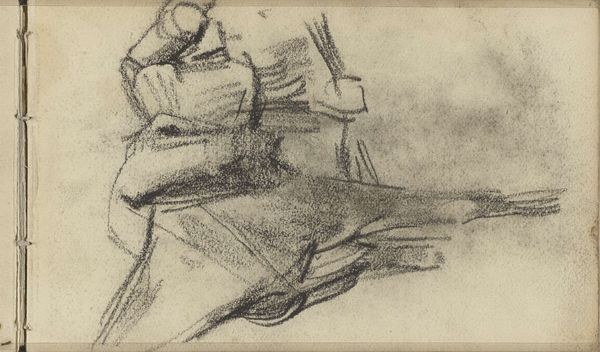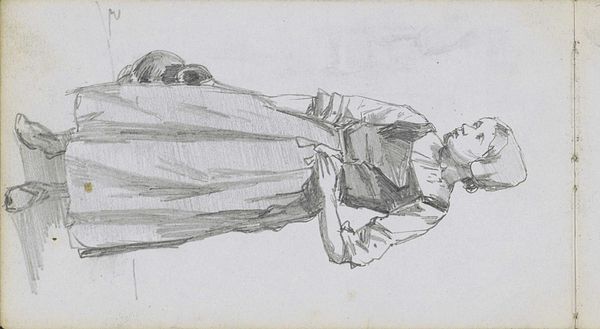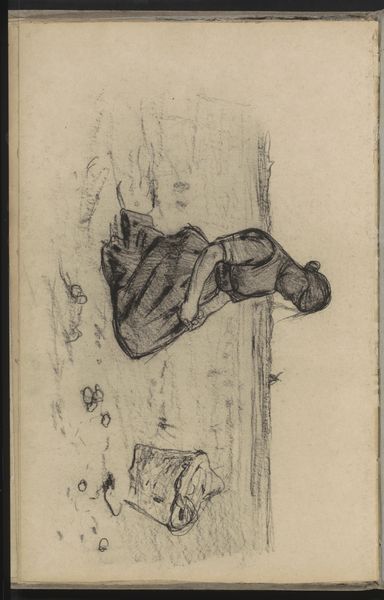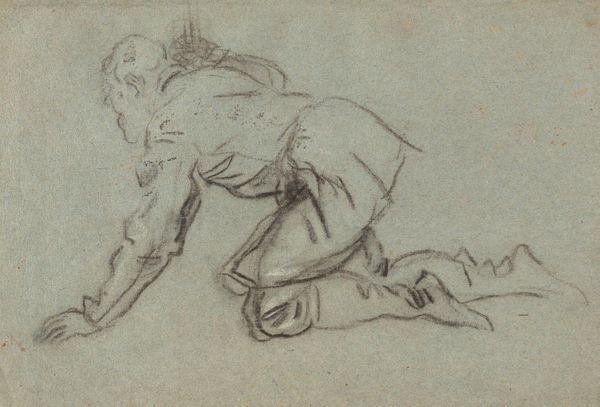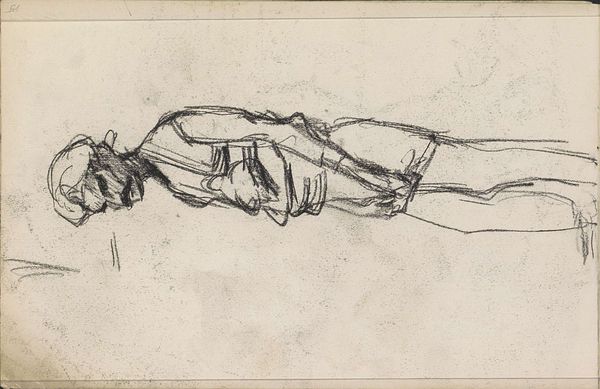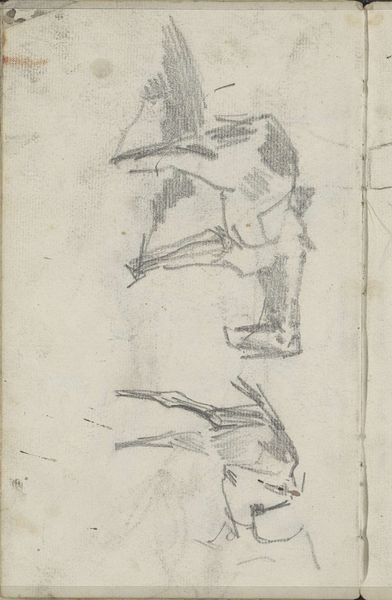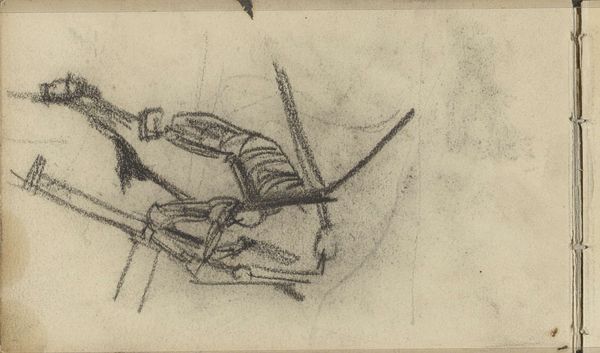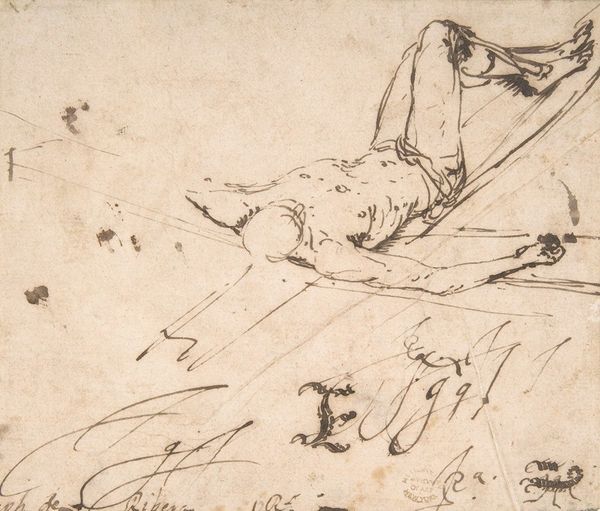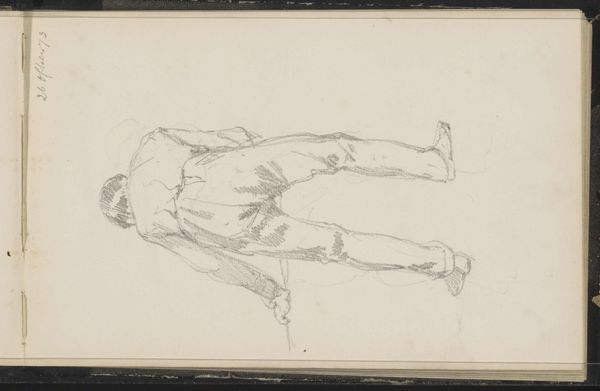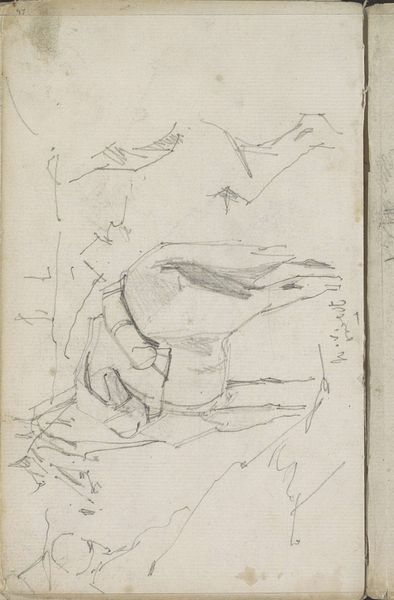
drawing, pencil, graphite
#
drawing
#
narrative-art
#
landscape
#
coloured pencil
#
pencil
#
graphite
#
history-painting
#
realism
Copyright: Public Domain: Artvee
Editor: Winslow Homer’s sketch, “Three Days on the Front,” made between 1863 and 1864 using graphite, pencil, and colored pencil, gives an immediate impression of weariness. What deeper meanings do you find in it? Curator: This drawing offers a glimpse into the often-unseen realities of war. Homer’s choice of medium, simple pencil strokes, evokes a sense of immediacy, reflecting the raw and unfiltered experiences of soldiers during the Civil War. What does the averted gaze of the figure on the left suggest to you about his emotional state, given the context of that devastating conflict? Editor: It feels like a withdrawal, a kind of turning inward in the face of trauma, perhaps? Curator: Precisely. Think about the broader historical and social implications. The Civil War was fundamentally a conflict over race, identity, and the very soul of the nation. Homer, though seemingly depicting a scene of everyday soldier life, subtly confronts the viewer with the human cost of such ideological battles. Do you see any parallels with contemporary conflicts and the ways marginalized communities are disproportionately affected? Editor: I hadn't considered that direct connection, but now I see how this work can speak to current struggles. It shows how important it is to connect these historical events with our present day understanding of racial justice and social equity. Curator: Indeed. It’s about more than just the past. It’s about acknowledging the cyclical nature of violence, oppression, and resistance throughout history, and understanding art’s crucial role in reflecting and challenging those realities. It makes us question whose stories are amplified, and whose are relegated to the margins, even within supposedly "objective" historical representations. Editor: I'm definitely walking away with a deeper understanding of Homer's work now! Thanks!
Comments
No comments
Be the first to comment and join the conversation on the ultimate creative platform.
